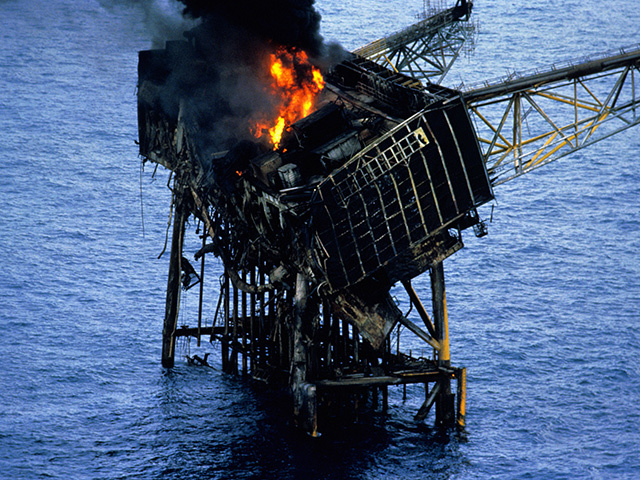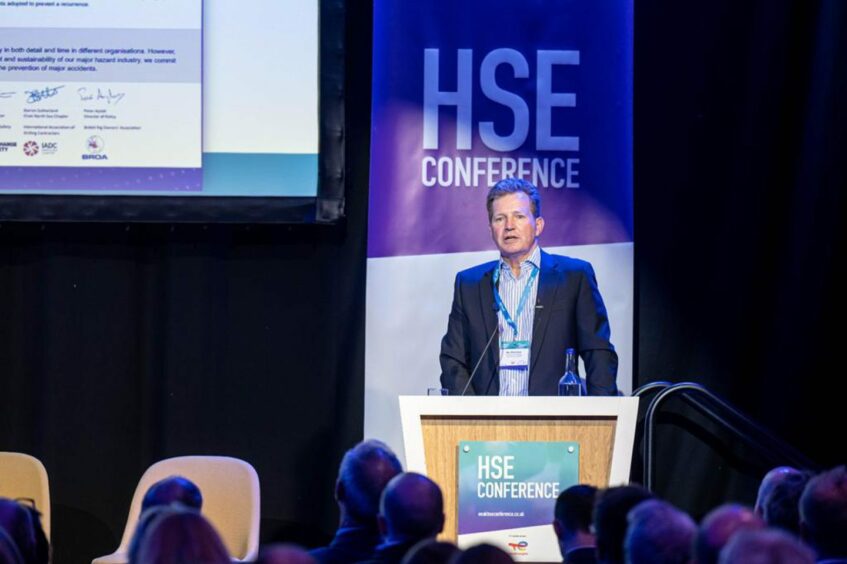
Maintenance backlogs on offshore installations peaked following the pandemic and have never returned to pre-covid levels, health and safety watchdog has warned.
“It could be said that we have the potential for a major accident,” Health and Safety Executive (HSE) board member Ken Robertson told Aberdeen’s P&J Live on Tuesday for Offshore Energies UK’s HSE conference.
He said: “Major hydrocarbon leases continue to occur, maintenance backlog remains significantly above pre-pandemic levels and high potential incidents and near misses continue to occur.
“This is all set against the backdrop of ageing installations, reduction in resources, loss of knowledge and competency and the energy transition.”
The maintenance backlog
In his presentation at the principles of safety leadership session, the HSE non-executive director showed a graph that illustrated the issue.
Slides presented by Mr Robertson at the conference showed that the North Sea maintenance backlog peaked in Q3 2021.
Despite dropping to a lower level since then, the industry has not been able to return to rates from before 2020.
Before Mr Robertson took to the stage, HSE and operations director for Offshore Energies UK (OEUK), Mark Wilson, asked those in the room to indicate whether or not they had personally read 2019’s Principles of Process Safety document.
“About 30 to 40%” raised their hands, estimated Mr Wilson. This paints a grim picture of how the industry has treated safety in recent years.
Robertson warned: “The UK offshore sector has not suffered a catastrophic event since Piper Alpha, although this does not mean that we are safe.”
He added: “History tells us that failures in process safety leadership can result in catastrophic consequences.”
‘Industry has the capacity to avoid such a serious outcome’
That being said, Mr Roberston showed faith in the industry he has 40 years of experience working in.
He announced: “I believe the industry has the capacity to avoid such a serious outcome.”
Although to avoid these potentially catastrophic scenarios, the industry must be open to sharing incidents and the learning that came from them.
This was a sentiment echoed by several of the speakers at the session.
The HSE boss said that “ensuring that we take the right steps and make the right decisions based on the right information and by encouraging feedback on performance and reporting of bad news” is key to avoiding major incidents.
The importance of sharing incidents
Tom Child, chief executive of ORPED and the Department for Energy Security and Net Zero, took to the lectern to warn the industry of the impacts it may face if a major incident is to take place.
Mr Child said: “I don’t need to remind you that any accident which may result in loss of life or a major environmental incident could well call into question industry’s social licence to operate from a government perspective.
“That would cast doubt on delivering domestic energy security and potentially increase our reliance on imported fossil fuels that have a greater carbon footprint than that we produce at home.”
Concluding, he said: “Embedding these principles in your business is a real significance.”
Recommended for you


 © Supplied by Michal Wachucik
© Supplied by Michal Wachucik